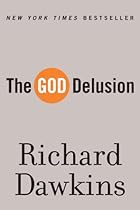 Bear with me on this somewhat Talmudic line of thought.
Bear with me on this somewhat Talmudic line of thought.An op-ed in the Times claims children of the unaffiliated commonly become members of a religious group at a significant rate.
We consider this another proof of the theory of evolution.
Richard Dawkins eloquently argues (in The God Delusion) that religion is an accidental byproduct of evolution. Religious humans are more fit than the non-religious. Because of evolution, humans as a whole are genetically predisposed to be religious.
The fact that children of the unaffiliated, deprived of the nurture of religion, still gravitate towards affiliation with religion, confirms that indeed, religion is hard wired into our evolved human nature.
It's one way of looking at the data so concisely summarized by Charles M. Blow in his op-ed, "Defecting to Faith,"
“Most people are religious because they’re raised to be. They’re indoctrinated by their parents.”By the way, sheesh, that correction sure is significant. I paused a while in disbelief when I read the print version with the erroneously lower statistics.
So goes the rationale of my nonreligious friends.
Maybe, but a study entitled “Faith in Flux” issued this week by the Pew Forum on Religion and Public Life questioned nearly 3,000 people and found that most children raised unaffiliated with a religion later chose to join one. Indoctrination be damned. By contrast, only 14 percent of those raised Catholic and 13 percent of those raised Protestant later became unaffiliated.
(It should be noted that about a quarter of the unaffiliated identified as atheist or agnostic, and the rest said that they had no particular religion.)
So what was the reason for this flight of the unchurched to churches?
Did God appear in a bush? Did the grass look greener on the other side of the cross? Or was it a response to the social pressure of being nonreligious in a very Christian country?
None of those reasons topped the list. Most said that they first joined a religion because their spiritual needs were not being met. And the most-cited reason for settling on their current religion was that they simply enjoyed the services and style of worship.
For these newly converted, the nonreligious shtick didn’t stick. There was still a void, and communities of the faithful helped fill it.
While science, logic and reason are on the side of the nonreligious, the cold, hard facts are just so cold and hard. Yes, the evidence for evolution is irrefutable. Yes, there is a plethora of Biblical contradictions. Yes, there is mounting evidence from neuroscientists that suggests that God may be a product of the mind. Yes, yes, yes. But when is the choir going to sing? And when is the picnic? And is my child going to get a part in the holiday play?
As the nonreligious movement picks up steam, it needs do a better job of appealing to the ethereal part of our human exceptionalism — that wondrous, precious part where logic and reason hold little purchase, where love and compassion reign. It’s the part that fears loneliness, craves companionship and needs affirmation and fellowship.
We are more than cells, synapses and sex drives. We are amazing, mysterious creatures forever in search of something greater than ourselves.
Dale McGowan, the co-author and editor of the book “Parenting Beyond Belief” told me that he believes that most of these people “are not looking for a dogma or a doctrine, but for transcendence from the everyday.”
Churches, mosques and synagogues nurture and celebrate this. Being regularly surrounded by a community that shares your convictions and reinforces them through literature, art and ritual is incredibly powerful, and yes, spiritual.
The nonreligious could learn a few things from religion.
Correction: A previous version of this column misstated the percentage of Catholics and Protestant who later became unaffiliated. The correct percentage for Catholics is 14, not 4, and the correct percentage for Protestants is 13, not 7.
Bottom line though, Mr. Blow apparently does not have a sophisticated Talmudic understanding of how this data set about religion-choices so eloquently supports the evolutionary approach to human biology.
No comments:
Post a Comment